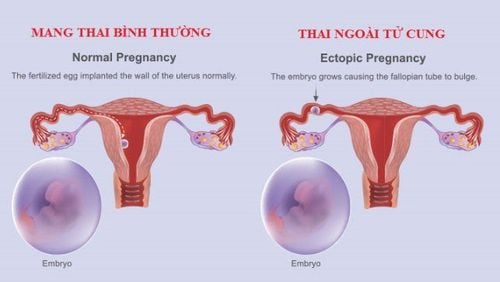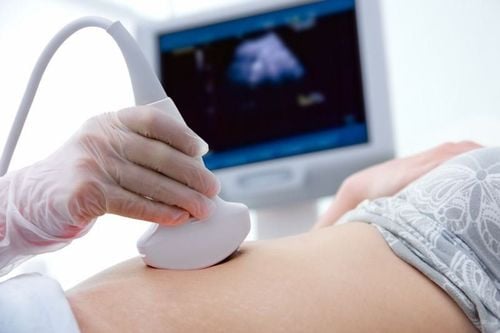This is an automatically translated article.
Heartburn during pregnancy often appears in the early stages, in addition, some people also have gastric reflux during pregnancy or indigestion during pregnancy, although not dangerous, but if treated timely will adversely affect the health of the mother and the development of the fetus.
Pregnancy sourness (also known as acid indigestion or pregnancy acid reflux), is a burning sensation that usually extends from below the breastbone up to the throat. During pregnancy, the placenta produces a hormone called progesterone. Progesterone relaxes the valve that separates the esophagus from the stomach, allowing stomach acid to back up into the throat or mouth, leaving a sour or bitter taste.
During pregnancy, the baby will grow and push the mother's intestines and stomach up, forcing stomach acid back into the digestive tract, causing heartburn, indigestion during pregnancy increased.
3 causes of heartburn during pregnancy:
Hormonal changes: Progesterone, also known as the pregnancy hormone, is the most common cause of heartburn during pregnancy. When a pregnant woman eats or drinks, the muscles usually open to allow food to enter the stomach and then close tightly. But the elevated progesterone levels that occur during pregnancy can cause muscles to sag, leading to stomach acid backing up into your esophagus and even into your throat. Fetal development: The fetus is growing day by day, forcing the uterus to grow accordingly to match. The growing uterus will put pressure on the stomach, increasing the possibility of stomach acid spilling out, leading to heartburn during pregnancy. Stress during pregnancy: Conditions such as stress, anxiety, and stress during pregnancy are things that pregnant women cannot avoid. These problems are the cause of increased secretion of gastric juice, leading to heartburn and indigestion during pregnancy. To reduce symptoms of heartburn, indigestion during pregnancy, pregnant women need to:
Avoid carbonated drinks, chocolate, acidic foods such as citrus and tomatoes, avoid spicy or fried foods. Eat several small meals throughout the day instead of three large meals. Try chewing gum after eating. It stimulates the salivary glands and saliva can help neutralize acids. Although indigestion and heartburn during pregnancy do not directly affect the fetus, it causes negative effects on the mother's health. Heartburn during pregnancy for a long time can lead to burning pain and esophageal ulcers, making nausea and pregnancy more uncomfortable. Therefore, when experiencing such symptoms, it is necessary to seek timely treatment to prevent the disease from getting worse.
Please dial HOTLINE for more information or register for an appointment HERE. Download MyVinmec app to make appointments faster and to manage your bookings easily.













